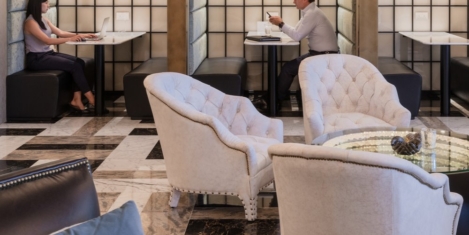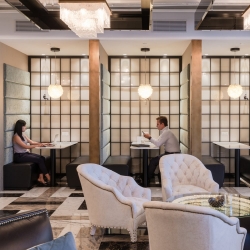To provide the best experiences, we use technologies like cookies to store and/or access device information. Consenting to these technologies will allow us to process data such as browsing behaviour or unique IDs on this site. Not consenting or withdrawing consent, may adversely affect certain features and functions.
The technical storage or access is strictly necessary for the legitimate purpose of enabling the use of a specific service explicitly requested by the subscriber or user, or for the sole purpose of carrying out the transmission of a communication over an electronic communications network.
The technical storage or access is necessary for the legitimate purpose of storing preferences that are not requested by the subscriber or user.
The technical storage or access that is used exclusively for statistical purposes.
The technical storage or access that is used exclusively for anonymous statistical purposes. Without a subpoena, voluntary compliance on the part of your Internet Service Provider, or additional records from a third party, information stored or retrieved for this purpose alone cannot usually be used to identify you.
The technical storage or access is required to create user profiles to send advertising, or to track the user on a website or across several websites for similar marketing purposes.
 Daily monitoring can lead to remote workers feeling that their managers have less trust in them, research from NEOMA Business School reveals. Birgit Schyns, Distinguished Professor of People and Organisations at NEOMA, co-authored a study analysing survey data on 450 employees at UK-based firms. According to the researchers, when working from home, employees can feel that they have less autonomy and are under constant surveillance if monitored too frequently. These feelings can be exacerbated if managers’ behaviour is unpredictable, they say. (more…)
Daily monitoring can lead to remote workers feeling that their managers have less trust in them, research from NEOMA Business School reveals. Birgit Schyns, Distinguished Professor of People and Organisations at NEOMA, co-authored a study analysing survey data on 450 employees at UK-based firms. According to the researchers, when working from home, employees can feel that they have less autonomy and are under constant surveillance if monitored too frequently. These feelings can be exacerbated if managers’ behaviour is unpredictable, they say. (more…)



































